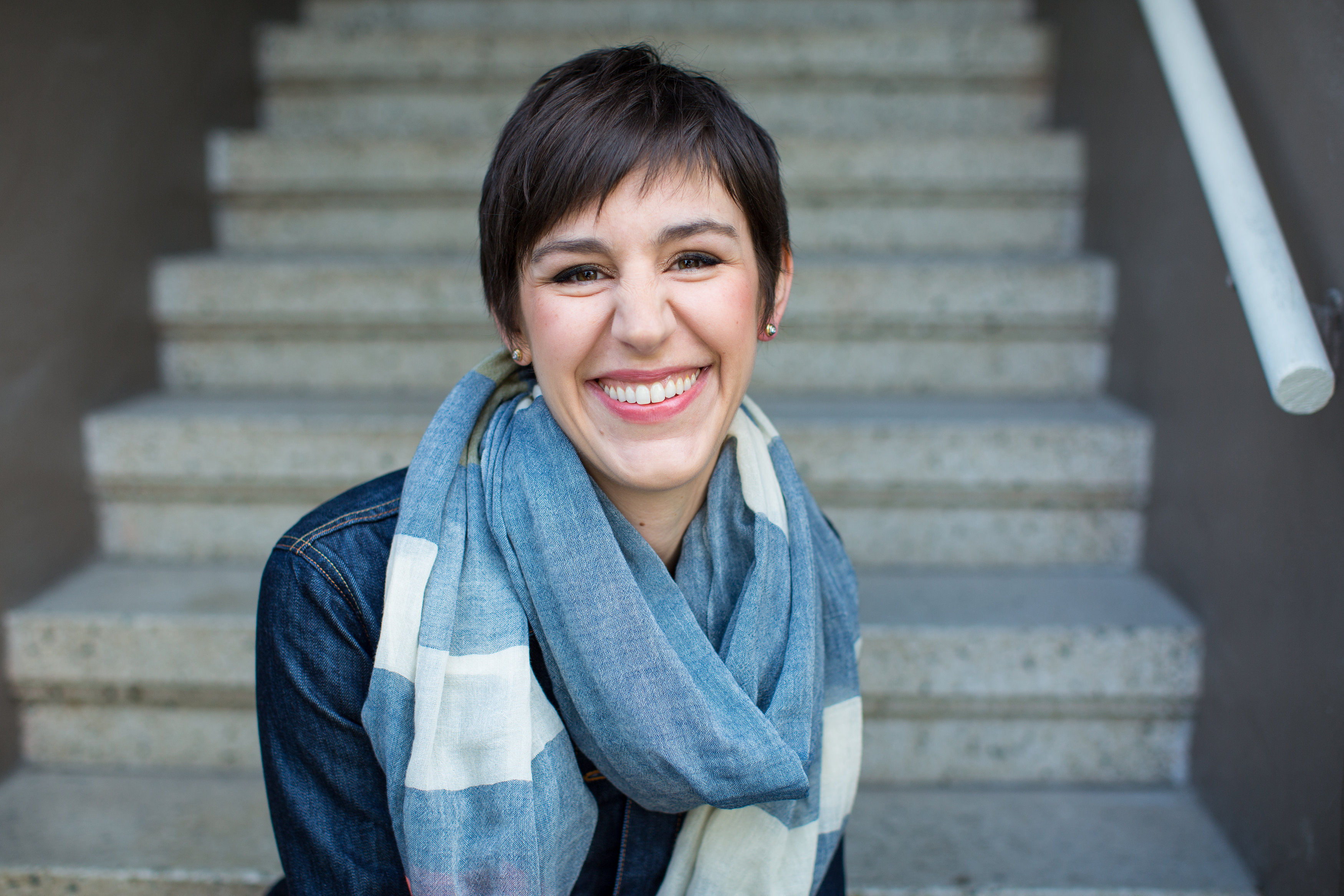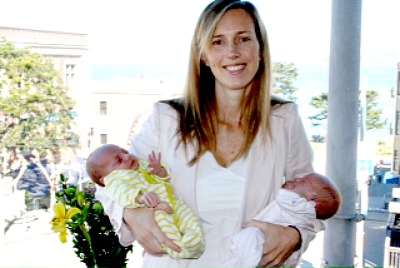I clearly remember one day in middle school when I was cleaning out my closet and came across a first grade report card with a note my teacher had written on it saying, “Julie follows directions well, but she is not that creative.”
As a teenage girl always looking for outside validation, that comment struck me to the core. Part of me wondered what kind of teacher would write this on a first grader’s report card, but most of me accepted this commentary as fact. If a teacher said it, it must be true.
And for the next 15 years, I heard that teacher’s voice again and again every time my own inner critic reminded me that I was not creative.
In college, I dreamed about taking a creative writing course and even signed up for one at one point, but I pulled out at the last minute, terrified of making a fool of myself and telling myself that it was more important to take economics.
When I worked in consulting after college, I hesitated to speak up in meetings when I saw the opportunity for a different and possibly better way of doing things because deep down I was scared to take a risk and publicly share a new idea that others might not think was good.
Later, I worked in brand management for Haagen-Dazs and at one point it was my job to come up with a limited edition ice cream flavor for the holidays. Sounds like fun, right? I was totally paralyzed. I couldn’t do it.
Time and time again, believing that I wasn’t creative became a way in which I held myself back.
When it came to creativity, I had opted out.
Now I can see that part of the problem was the limiting assumptions that were built into my definition of creativity.
In my mind:
- Creativity was something you were granted at birth. You either had it or you didn’t.
- Creativity meant you had to impress other people. If other people didn’t think your new idea was good, it must not be
- Only certain things were even eligible to be called creative. Namely, the arts. And maybe really good business ideas.
I realize now that creativity can show up in all sorts of different ways. That your ability to be creative can grow with practice just like anything else. And that when it comes to being creative you really can’t make a mistake, except to tell yourself that you’re not creative.
Here’s what I wish I had known back then about having the confidence to be creative:
- Stop worrying about what other people think: Many people avoid tapping into their creativity because they’re scared of other people’s judgment. But just like anything else, chances are that other people are not paying such close attention anyway. And when you really start to dig in, who exactly are these “other people”? Is it really true that they’ll judge you? And if they do, does it really matter?
- Question your definition of creativity: Do you have preconceived ideas about what does & does not constitute creativity like I did? The truth is that you can apply creativity to just about anything. It could be a tweak you make to a recipe, or a creative way to save money and stick to a budget, or coming up with a new stretch based on what your body feels like it wants to do. There does not have to be a finished product or something that you can display at the end. In fact, just enjoying the process and throwing out that idea that you need to have an end result can make it a lot easier to use (and enjoy) your creativity.
- Practice: Just like anything else, you can build your confidence and feel more creative with practice. The more often you give yourself space to use your creativity the faster you will build the confidence that you can. Just thinking of creativity as something you practice rather than something you’re “born with” can lead to a big shift in how you approach the idea of being creative.
- Question your inner critic: Pay attention to what you tell yourself when it comes to creativity. Whose voice does it sound like? Is it the voice of a parent or teacher or other authority figure who passed along their own fears or preconceived ideas to you? Do you know for sure that what that voice says is really true? Send that inner critic some compassion and let it know that you will be ok.
- Play: When you were a child you naturally tapped into your imagination all the time without even thinking about it. That’s part of the beauty of seeing children play – they aren’t thinking about it! These days many of us are stuck in our heads in analysis mode without much or any real playtime in our lives. And play is vital to tapping into our imagination. There’s also a freedom that comes with play – there’s no “right” way to play and you can’t mess it up. Even if whatever you do for play does not feel particularly creative (but chances are is it, since really, just about everything has the potential to be creative) just the act of letting yourself have some fun will help you tap into your creative self.
- Embrace bad ideas: When you don’t feel confident about your creativity there’s often some perfectionism lurking there as well. And if we label our idea or our work as “bad” it becomes a reason to give up on our creativity. It’s easy to assume that truly creative people just knock out one masterpiece after another, but the truth is usually that creative people produce a lot (they practice!) and they don’t get stuck judging what they’ve created. What if you let yourself fail and even embraced the notion of having bad ideas, because really whose to say it’s bad, and if it is, so what? It’s all about the process.
- Don’t wait to be inspired: Waiting for “inspiration” can quickly turn into a form of resistance. And to really grow your creativity and your confidence you need to take action. Just try something. Anything.
How about you? Are there ways in which you stunt your own ability to be creative because you tell yourself you can’t do it? Which of these tips resonate most strongly for you?
Après is a career resource for women returning to work after a break or transitioning within the workforce. Reconnect with your professional self — search jobs, get inspired, find resources, and refresh your skills. Join our community of women helping women.
Photo by rawpixel.com on Unsplash





